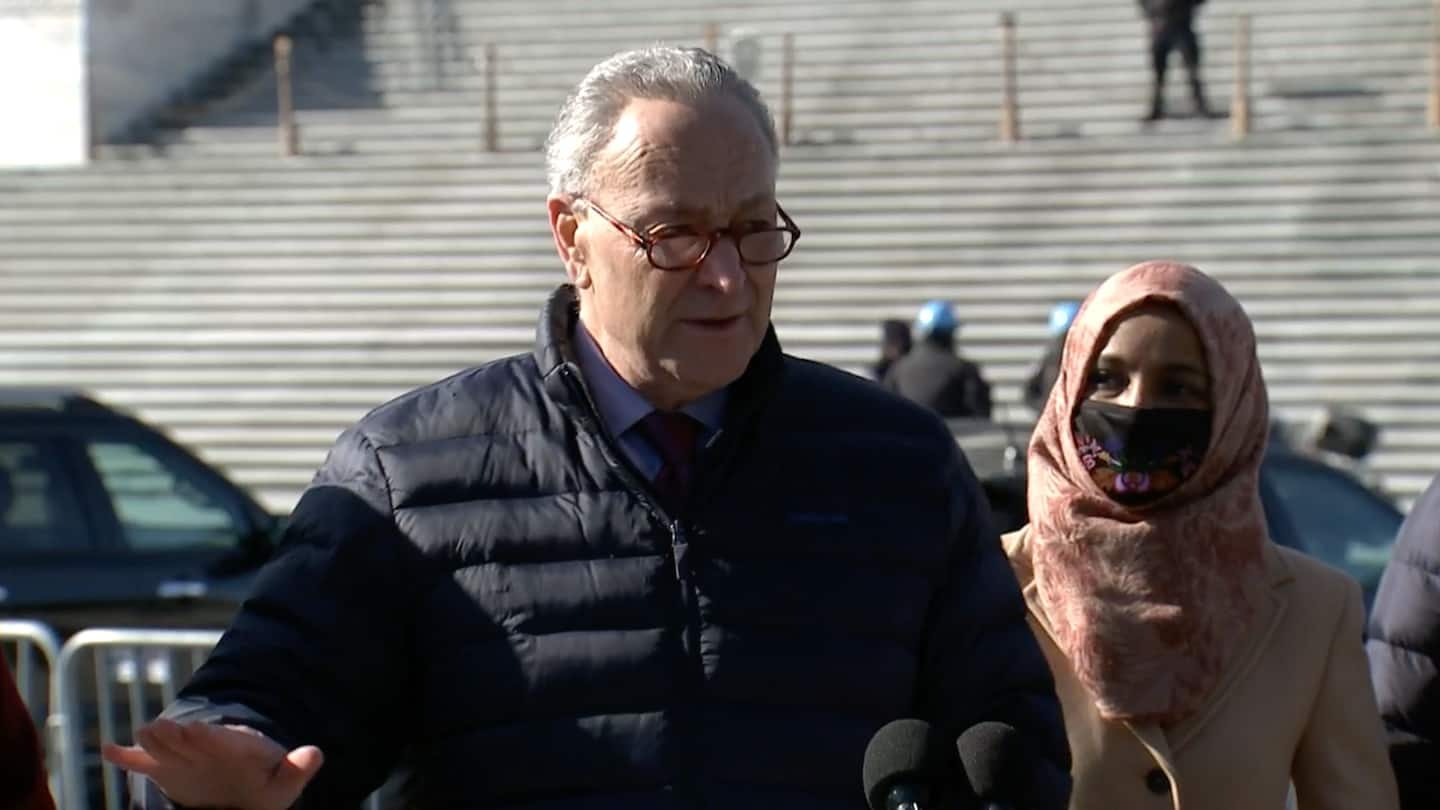Biden vs. the base? The reality of Biden’s scaled-back ideas on minimum wage, student loans isn’t so simple.

It’s true that some top Democrats, including Senate Majority Leader Charles E. Schumer (D-N.Y.), Sen. Elizabeth Warren (D-Mass.) and Rep. Ayanna Pressley (D-Mass.), have called for a bolder approach — for Biden to try to erase $50,000 in student loan debt by himself. It’s also true that his party is pretty much united behind a $15 minimum wage. But Biden’s comments have been less about an ideological rift in his party than the kind of practical politics he espoused during his campaign. And indeed, there’s evidence his approach could actually bring more people — including even more Democrats — onboard.
On the minimum wage, for instance, there have been plenty of indications it might not be feasible in the coronavirus relief package in which it was initially proposed, because the package is apparently headed for a reconciliation process (and a 50-vote threshold) that includes limitations on what can be included. Beyond that, Biden would need GOP buy-in to make it happen, which is a tough sell.
Biden indicated in a CNN town hall Tuesday that he would be open to a more gradual phase-in, to allay concerns among business owners about an rapid doubling of the minimum wage, which currently stands at $7.25.
“Let’s say you said you’re going to increase the minimum wage from $7.25 an hour between now and the year 2025 to $12 an hour, to $13 an hour — you’d double someone’s pay, and the impact on business would be absolutely de minimis, and it would grow the GDP,” Biden said.
“I do support a $15 minimum wage,” Biden said, while adding of the business impact: “But that’s a debatable issue.”
This debate does often get oversimplified — as many issues do — as being about something amounting to free money. There are implications when it comes to businesses’ ability to pay that wage and keep people employed, which Biden acknowledged in a way that his fellow partisans often don’t. It’s true that the minimum wage hasn’t kept pace with inflation and hasn’t been raised in a decade, but it’s also true that figuring out the most beneficial new number — and how quickly it should be instituted — is a valid pursuit.
Polls have regularly shown that a strong majority of Americans favor raising the minimum wage to $15 per hour — as much as two-thirds, in some surveys. But when told about the potential economic implications, including a Congressional Budget Office forecast that it could cost more than 1 million jobs, support drops substantially.
As for forgiving $50,000 in student loan debt, Biden’s comments were less that he doesn’t support the idea than that he questions his authority to do it unilaterally — via executive action — and whether it should be more targeted to lower incomes.
“My daughter went to Tulane University and then got a masters at Penn. She graduated $103,000 in debt,” Biden said Tuesday. “I don’t think anybody should have to pay for that, but I do think you should be able to work it off.”
Schumer and Warren put out a statement reiterating their call for Biden to forgive $50,000 with a stroke of the pen. They argue that Biden could do it, given President Donald Trump unilaterally waived student loan debt interest during the coronavirus pandemic.
The White House later clarified that the Justice Department will review Biden’s authority to forgive student debts via executive action, but that he would eagerly sign a bill that included $10,000 in forgiveness. From there, the question is about what he would support when it comes to $50,000.
Again the polls, at their basest level, suggest $50,000 is a popular number. A poll for Vox.com recently showed a slight majority overall (52 percent) and 75 percent of Democrats supported erasing $50,000 in student loan for every borrower. But “strong” support rose when it was more targeted at lower-income Americans — those making less than $125,000 a year — from 36 percent to 44 percent among Democrats. (That’s not Biden’s specific proposal, but it suggests it might be even more popular among his base to be more targeted.)
And support rose both among Democrats and (substantially) overall when the forgiveness was tied to public service — $10,000 for each year spent in such fields. In that case, 67 percent overall and 80 percent of Democrats supported the idea, with 48 percent of Democrats strongly supporting it. Targeting, it seems, brings both more Americans and (albeit to a lesser extent) more Democrats onboard.
Polls often show Americans overall, and especially Democrats, are in favor of raising the minimum wage and forgiving student loans. Biden’s approach, though, seems to be more geared toward getting it done via legislation and tailoring it to the practical realities of the situations — ones that many Americans might not consider when expressing support for those broader policies, but seem to support even more when you drill down.
It also seems geared toward potentially at least trying to get Republicans on board. Whether that will happen or not — and skepticism is warranted — it certainly undercuts the idea that he’s sold out to his party’s base. But it’s also not as if he’s abandoning it, either.






